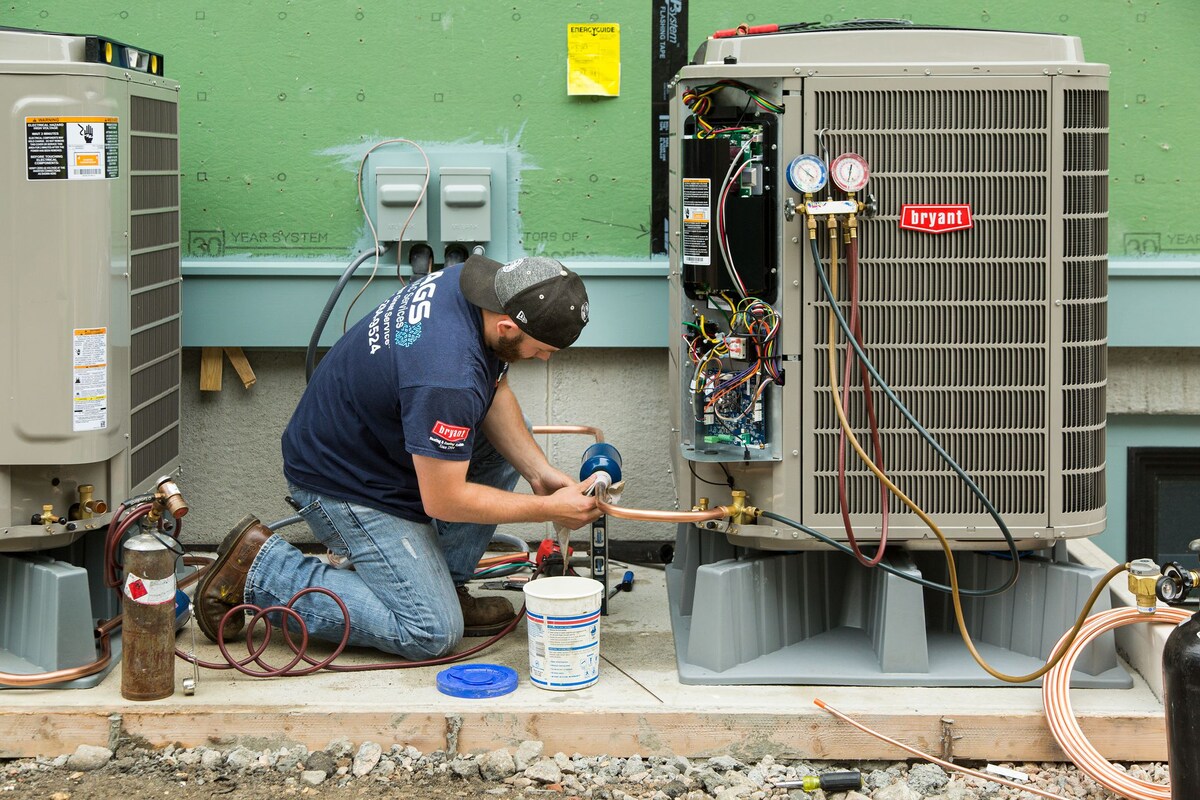When it comes to creating a cozy living environment, comprehending HVAC is essential. If https://posteezy.com/advancements-heating-ventilation-and-air-conditioning-whats-new-industry 're a homeowner looking to make enhancements or someone interested in furthering your knowledge about heating and cooling systems, this guide will help you find your way through the frequently complicated world of HVAC. From selecting the right system to knowing when to fix or replace your existing setup, we will provide you with the information you need to budget wisely for your HVAC needs.
Your HVAC system has a significant role in your home’s overall efficiency and comfort, but numerous people are ignorant of the costs associated with installation, maintenance, and repairs. With this knowledge, you can make wise decisions that not just enhance your indoor comfort but also help you save on energy bills. We'll also explore common HVAC problems and offer solutions, advice for improving energy efficiency, and direction on maintaining good indoor air quality. By the end of this article, you'll be better equipped to understand the costs involved and how to make the most of your HVAC investment.
Comprehending Heating, Ventilation, and Air Conditioning

Heating, Ventilation, and Air Conditioning stands for the process of heating, air circulation, and air conditioning. It functions as a important aspect of residential and commercial buildings, guaranteeing comfort and preserving the quality of indoor air. HVAC systems control temperature and moisture levels while delivering clean air through proper filtration and airflow. They are found in various types, each crafted to satisfy the particular climate control requirements of the space they serve.
At its heart, an heating and cooling system consists of a boiler or heater for warmth, an cooling system for cool air, and a series of air ducts or pipes that deliver air throughout the facility. The system also includes a temperature control device for regulating temperature and filters to filter out contaminants and allergens from the air. Understanding how each part functions in unison is crucial for efficient performance and upkeep.
The efficiency of an HVAC unit is greatly influenced by proper installation and routine service. Property owners and companies must pick the right system based on the size and unique requirements of their environment. Additionally, scheduled inspections and servicing help avoid common issues and guarantee the system performs at peak effectiveness, ultimately lowering money on energy expenditures and extending the lifespan of the hardware.
HVAC Maintenance and Effectiveness
Regular maintenance is critical for ensuring your HVAC system operating efficiently. This includes activities such as changing air filters, washing coils, and checking refrigerant levels. Ignoring these maintenance tasks can cause decreased system efficiency, higher energy bills, and even unexpected breakdowns. Homeowners should schedule professional inspections at least one time a year to ensure all components are operating correctly and to identify any potential issues before they grow worse.
Efficiency is not just about routine maintenance; it also involves enhancing your HVAC system's performance. Think about using programmable thermostats to adjust temperatures based on your schedule, lowering energy consumption when you're not home. Sealing your home effectively and fixing any air leaks can greatly enhance efficiency by allowing your system to work less while keeping comfort levels. Minor changes in your HVAC usage habits can lead to substantial savings over time.
Furthermore, upgrading to high-efficiency models can yield both short-term and long-term benefits. Latest systems are designed with innovative technology that improves efficiency ratings, which translates to lower energy costs. If your system is more than a decade old, it may be appropriate to assess your options. Putting money in an energy-efficient HVAC system not only helps reduce your environmental impact but can also increase your home's value and provide you with better indoor air quality.
Advanced HVAC Solutions and Advancements
The HVAC industry is always evolving, with advancements in technology leading to more optimized heating and cooling approaches. One of the most notable innovations is the introduction of connected HVAC technologies. These systems can be operated remotely via cell phone apps, enabling homeowners to check and adjust their heating and cooling settings from any location. This not only improves convenience but also contributes to electricity savings by allowing users to fine-tune their setup based on live data and occupancy patterns.
Another major innovation is the incorporation of renewable energy into within HVAC technologies. Solar-based HVAC systems, for example, harness solar energy to minimize dependence on traditional energy suppliers, resulting in lower electricity bills and a smaller carbon footprint. Additionally, read this article -sourced heating and cooling systems are gaining traction for their performance and ecological benefits. By taking advantage of the ground's stable subterranean temperature, these systems can provide ideal indoor environments while consuming less electricity than standard solutions.
As HVAC technologies continue to progress, indoor air quality remains a top focus for homeowners and organizations alike. Modern technologies are now fitted with advanced filtration and ventilation solutions that significantly enhance indoor air quality. The best air filters and intelligent sensors detect and respond to airborne toxins and allergens, providing cleaner air while promoting improved health and comfort. These innovations not only make HVAC systems more optimized but also enhance the overall home and office environment.
